CReWMaN Seminar Series
Friday, 11 am CDT
Zoom Link: https://umsystem.zoom.us/s/157469758
CReWMaN
Seminar Details
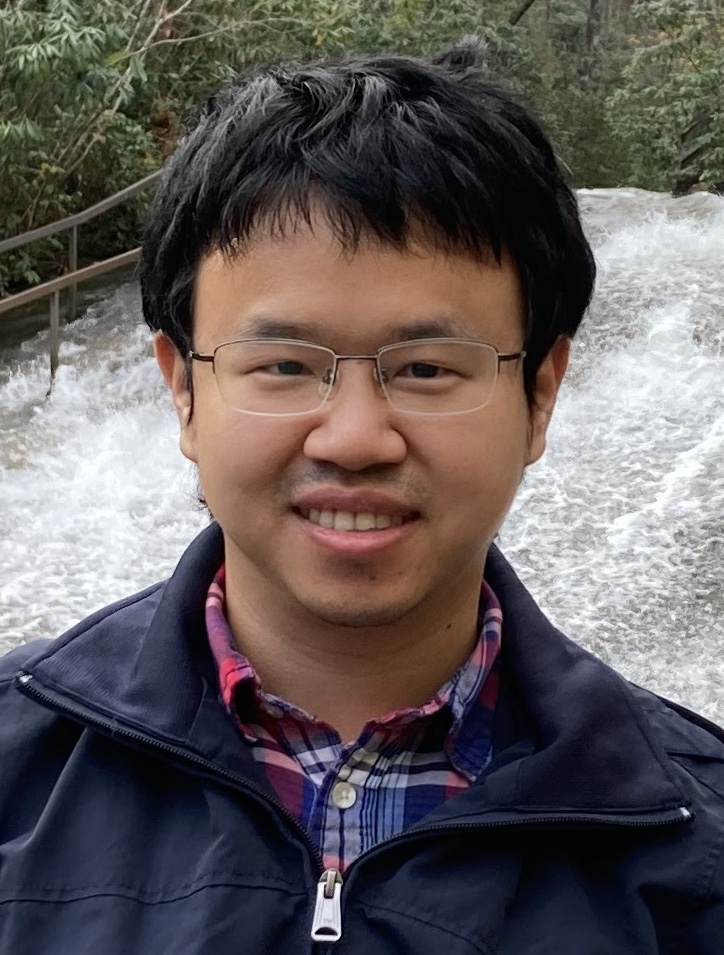
Title: Keeping-up with Exascale Data Flood via Trust-aware Lossy Compression
Speaker: Dr. Xin Liang, Missouri University of Science and Technology
Date: Feb 5, 2021
Abstract:
Extreme-scale scientific simulations and experiments on scientific instruments are already generating more data than that can be stored, transmitted, and analyzed. The up-comping exascale systems and high-resolution scientific instruments are going to exacerbate this problem, due to the slow increase of storage capacity and transmission bandwidth compared with the fast increase of data generation/acquisition speed. To keep up with such data flood, my research focuses on the development of efficient and scalable algorithms for high performance data management on massively parallel architectures and heterogeneous systems. In this talk, I will present how we mitigate the data problems arising from real-world scientific applications including cosmology, quantum chemistry, climate, and fusion, while preserving the data fidelity (trust). Specifically, I will talk about 1) error-controlled and feature-preserving lossy compression; and 2)hierarchical data representation and progressive retrieval. Our final goal is to deliver an automatic system to efficiently manage data for the scientists, which can enable flexible data storage/sharing and reduce the time to scientific insights.
Bio:
Dr. Xin Liang is a tenure-track assistant professor with the Department of Computer Science at Missouri University of Science and Technology. Prior to that, he was a Computer/Data Scientist in the Workflow Systems Group at Oak Ridge National Laboratory (ORNL). His research interests lie broadly in the areas of high-performance computing, parallel and distributed systems, scientific data management, large-scale data analytics, and distributed machine learning. He has published in many highly competitive conferences and journals such as IEEE/ACM SC, ACM HPDC, ACM PPoPP, ACM ICS, IEEE IPDPS, ACM PACT, IEEE BigData, IEEE Cluster, IEEE TPDS etc. He has received Dissertation Year Fellowship (DYP) from UCR and Best Paper Award from IEEE Cluster 2018. While working at ORNL, he led the ESAMR project funded by the Director's Research and Development (DRD) program as principal investigator. He is one of the key developers of SZ and major contributors of MGARD, which are two widely used data reduction software in the scientific computing community.
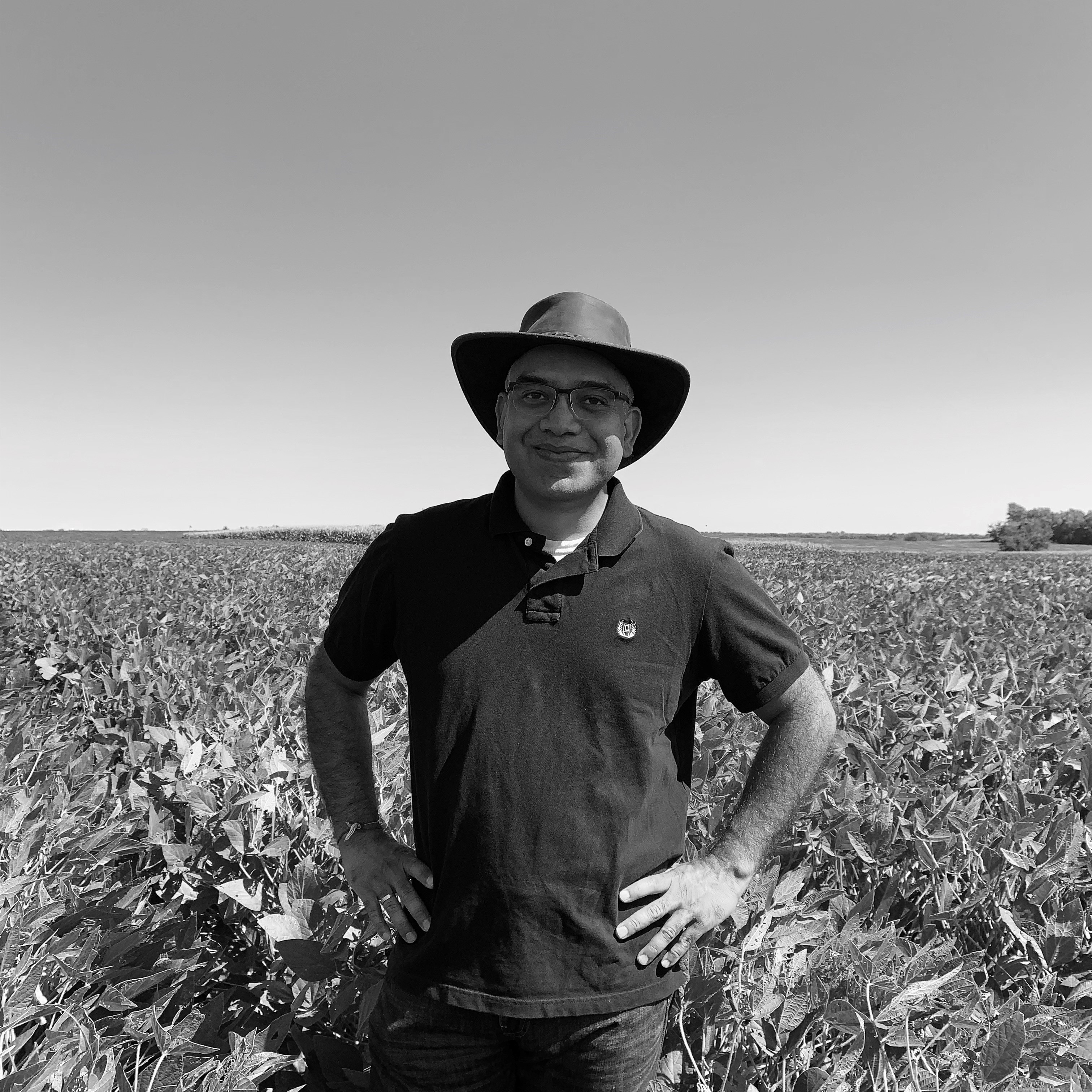
Title: Plant Breeding and Computer Science need to work together to enhance agriculture productivity.
Speaker: Dr. Danny Singh, Iowa State University
Date: Feb 12, 2021
Abstract: Plant breeders develop varieties that are grown by farmers, for their use in food, fuel, fiber and fuel. Plant breeding involves intricate processes and combines learnings from several disciplines to develop varieties that have high yield, desirable quality characteristics, resistant to biotic and abiotic stresses and efficient in resource utilization. In this presentation, several examples on the use of image based phenotyping and machine learning methods in plant phenotyping will be presented, which are helping improve the plant breeding pipeline. These will include tools for ground robotics and drone based phenotyping with various sensors, stress phenotyping, and root traits. The aim of this presentation is to give diverse examples to motivate and foster inter-disciplinary collaborations that can mutually benefit plant sciences and computer sciences, because plant scientists and breeders work with larger and complex dataset and “off the shelf” solutions generally don’t work requiring improved and customized computer science solutions.
Bio: Dr. Asheesh K Singh (Danny) is a Professor, and Bayer Chair in Soybean breeding at Iowa State University. He obtained PhD from the University of Guelph in 2007. Thereafter, he worked as a durum wheat breeder in Agriculture and Agri-Food Canada from 2007-2013. In 2013, he joined ISU as an assistant professor and soybean breeder. He has developed 18 soybean varieties, 39 wheat cultivars, and 14 germplasm lines. These cultivars are annually grown in > 10 million acres in North America. Singh has published more than 125 peer reviewed articles on topics related to plant breeding, genetics, and phenomics; and has published a plant breeding textbook. Singh leads two graduate level plant breeding courses at ISU.
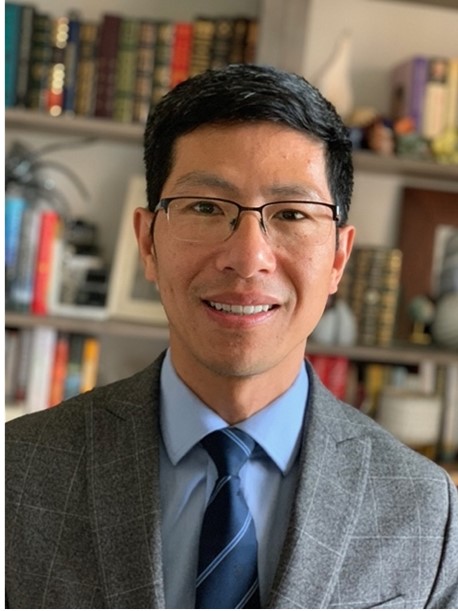
Title: When Deep Learning Meets Cybersecurity: Challenges and Opportunities
Speaker: Prof. Hongyi Wu, Old Dominion University
Date: Feb 19, 2021
Abstract: From Alexa and Google Assistant to self-driving vehicles and Cyborg technologies, deep learning is rapidly advancing and transforming the way we work and live. The technology is becoming prevalent and pervasive, infusing a deeper intelligence into the applications that touch people's everyday lives. While deep learning is embraced as important tools for efficiency and productivity, it is becoming an increasingly attractive target for cyber criminals. Wanton proliferation of deep learning technologies and applications could open vulnerabilities and enable new forms of cyber attacks. For instance, a wide-range of neural network models are vulnerable to adversarial examples, evasion attacks, poisoning attacks, backdoor attacks, and the stealing of machine learning data and models. The consequences of such attacks can be severe or even life-threatening. At the same time, while Internet-based deep learning services have been offered to support a variety of smart applications, such services come with a cost of privacy because users have to upload their private information to the cloud. This talk will discuss recent research at the intersection between machine learning and security/privacy, including new problems, solutions and future development of this field.
Bio: Hongyi Wu is a Batten Chair Professor and Director of the School of Cybersecurity at Old Dominion University (ODU). He is also a Professor in Department of Electrical and Computer Engineering and holds joint appointment in Department of Computer Science. Before joining ODU, he was an Alfred and Helen Lamson Professor at the Center for Advanced Computer Studies (CACS), University of Louisiana at Lafayette (UL Lafayette). He received the B.S. degree in scientific instruments from Zhejiang University, Hangzhou, China, in 1996, and the M.S. degree in electrical engineering and Ph.D. degree in computer science from the State University of New York (SUNY) at Buffalo in 2000 and 2002, respectively. His research focuses on networked and intelligent cyber-physical systems for security, safety, and emergency management applications. He chaired several conferences such as IEEE INFOCOM 2020 and IEEE WOWMOM 2021 and served on the editorial board of several journals including IEEE Transactions on Mobile Computing, IEEE Transactions on Parallel and Distributed Systems and IEEE Internet of Things Journal. He received NSF CAREER Award in 2004, UL Lafayette Distinguished Professor Award in 2011, and IEEE Percom Mark Weiser Best Paper Award in 2018. He is a Fellow of IEEE.
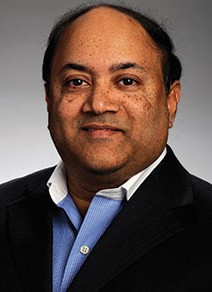
Title: What's next in Computing: A Perspective
Speaker: Dr. Balaram Sinharoy, IBM Research
Date: Feb 26, 2021
Abstract: A lot has changed since the first commercial computer, IBM 701, emerged from IBM Poughkeepsie Lab in 1953 and Intel's first commercial microprocessor, Intel 4004, launched in 1971. In the last 50 years, the transistor count on a single chip went up by 23 million times, from 2,300 (in Intel 4004) to 54 billion (in Nvidia Ampere A100). With technology slowdown, transistor count will not grow as fast in near future. In this talk, we will discuss how the hardware industry will likely to shape-up in near future to address the need to process and understand enormous amount of data that is growing exponentially, with limited help from silicon technology.
Bio: Dr. Sinharoy is an IBM Fellow and currently POWER Platform Chief Architect. His current interest is primarily in the processor technology and accelerated computing. Most recently, he led a team from IBM's Research and Development to define the next generation POWER processor. Dr. Sinharoy had been the Chief Architect of several generations of IBM's POWER processors. Dr. Sinharoy has published numerous articles and authored over 200 issued or pending patents in many areas of computer architecture and received several IBM corporate awards. Dr. Sinharoy received his MS and PhD from Rensselaer Polytechnic Institute. He is an IBM Master Inventor and an IEEE Fellow.
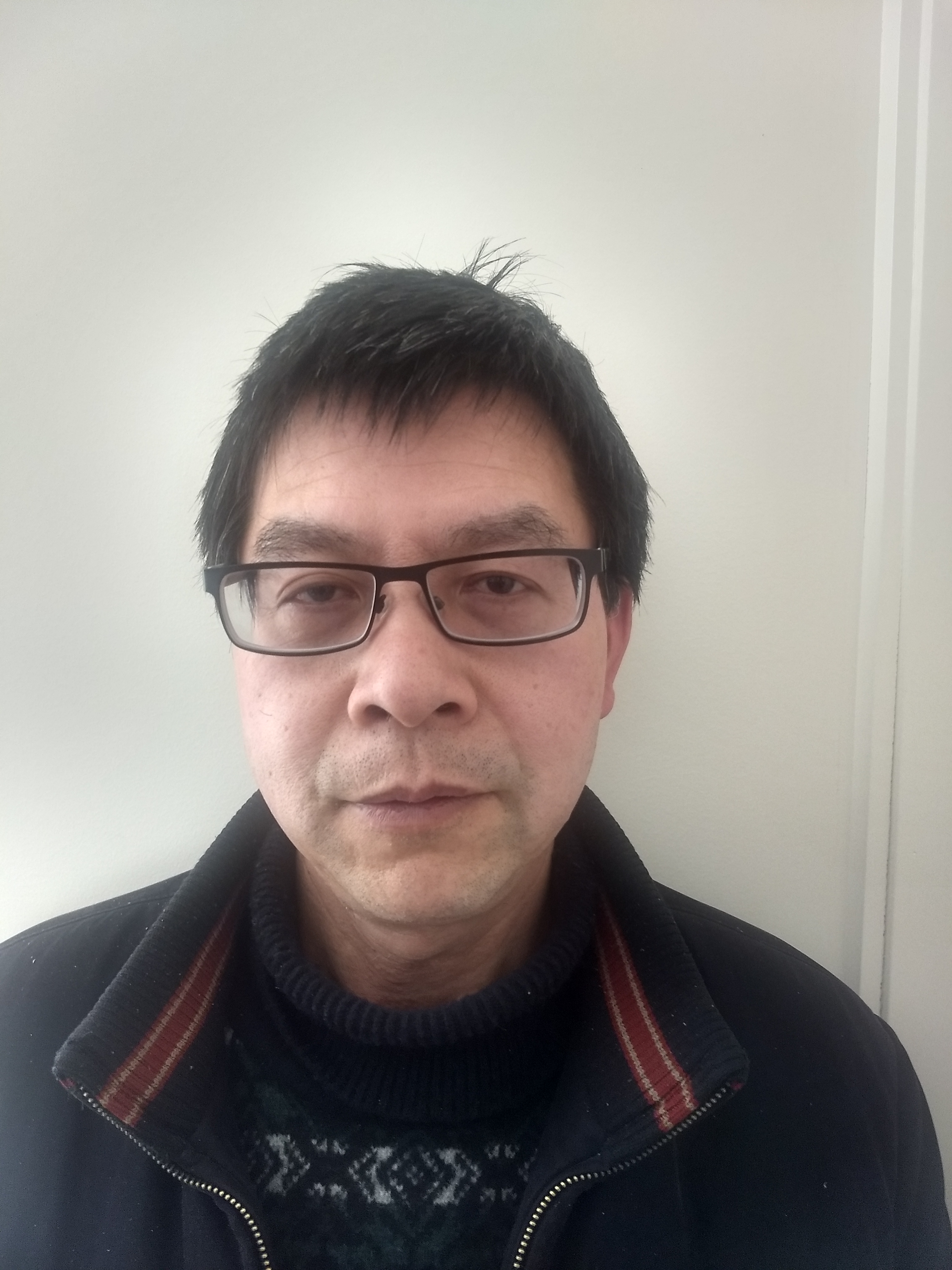
Title: Data Collection of IoT Devices Using an Energy-Constrained UAV
Speaker: Weifa Liang, Australia National University
Date: Mar 5, 2021
Abstract: In this paper, we study sensing data collection from IoT devices in a wireless sensor network, using an energy-constrained Unmanned Aerial Vehicle (UAV), where the sensory data is stored in IoT devices while the IoT devices may or may not be within the transmission range of each other. We formulate two novel data collection problems to fully or partially collect data from IoT devices using the UAV, by finding a closed tour for the UAV that includes hovering locations and the sojourn duration at each of the hovering locations such that the accumulative volume of data collected is maximized, subject to the energy capacity on the UAV, where the UAV consumes its energy on both hovering and flying from one hovering location to another hovering location. To this end, we first propose a novel data collection framework that enables the UAV to collect the sensory data from multiple IoT devices simultaneously if the IoT devices are within the hovering coverage range of the UAV. We then formulate two data collection maximization problems, and show that both of the problems are NP-hard. We instead devise efficient approximation and heuristic algorithms for the problems. We finally evaluate the performance of the proposed algorithms through experimental simulations. Experimental results demonstrated that the proposed algorithms are promising.
Bio: Weifa Liang received the PhD degree from the Australian National University in 1998, the ME degree from the University of Science and Technology of China in 1989, and the BSc degree from Wuhan University, China in 1984, all in Computer Science. He is currently a full Professor in the Research School of Computer Science at the Australian National University. His research interests include design and analysis of energy efficient routing protocols for wireless ad hoc and sensor networks, Internet of Things, mobile edge computing, Network Function Virtualization and Software-Defined Networking, design and analysis of parallel and distributed algorithms, approximation algorithms, combinatorial optimization, and graph theory. He is a senior member of the IEEE.
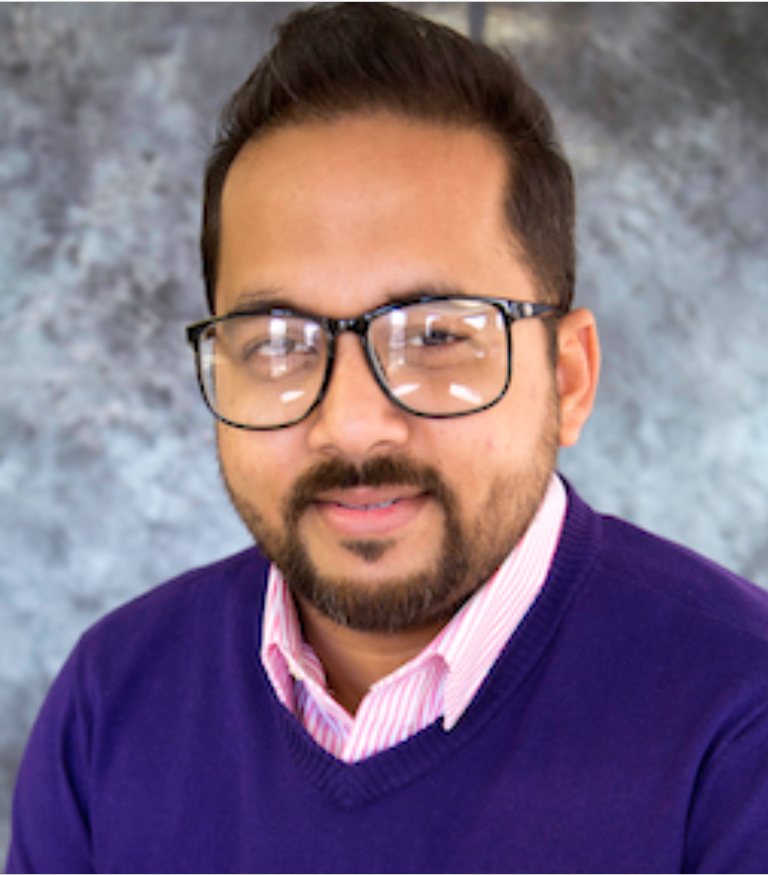
Title: Fog Resource Management for Future Smart Disaster Response: Challenges and Directions
Speaker: Dr. Saptarshi Debroy, Hunter College, The City University of New York
Date: Mar 12, 2021
Abstract: In the wake of large-scale natural/man-made disasters, researchers have proposed cloud-based solutions for rapid situational awareness for first responders. However, strict performance requirements of mission-critical and real-time applications data flows, coupled with limited availability of legacy network infrastructure following large-scale disasters make rapid round-trip data transfer and processing at cloud very unreliable. Instead, fog (on-premise edge computing) based disaster response deployments yield more effective solutions as resources would be available closer to the disaster site. However, design of effective fog-based solutions for disaster response is non-trivial as generic fog computing methods and models assume cloud-like system environment that cannot be applied for disaster incidence response.
This talk presents the unique challenges of cyberinfrastructure resource management to provide rapid situational awareness to first responders during disaster response. The talk outlines how typical cloud-inspired virtualized resource management solutions are unsuited for fog resource management in large-scale disaster response. The talk highlights our initial approaches to design effective methods and models that are simultaneously application-aware, data-aware, and resource-aware. In particular, the talk discusses algorithms, architectures, and results from two early works towards developing energy-efficient and spectrum-efficient fog framework for real-time video processing in collaboration with the Fire Department of New Work. The talk also introduces early findings towards solving similar resource management challenges to support more complex visual computing applications, such as 3-D reconstruction using both homogeneous and heterogeneous sensors.
Bio: Saptarshi Debroy is an Assistant Professor of Computer Science at Hunter College and a member of the doctoral faculties at The Graduate Center of The City University of New York (CUNY). At CUNY, he is the founder and director of Distributed Security and Resource Management (DiSaRM) Lab. Before joining CUNY, he was a postdoctoral fellow at University of Missouri-Columbia. He received his PhD degree from University of Central Florida in 2014, Master's degree from Jadavpur University, India in 2008, and Bachelor's degree from West Bengal University of Technology, India in 2006. Before joining academia, he has worked as research scientist in the industry for companies such as Motorola Inc. and Blue Coat Systems working on projects involving smart radios for first responders and secured data communication for IoTs. His current research interests include cyber security, distributed and cloud computing, big networking, and wireless networks. Dr. Debroy has managed multiple research and education projects funded by federal agencies such as National Science Foundation (NSF), Department of Energy (DOE), and corporations such as Verizon Foundation. His accomplishments include NSF Early career award, Presidential Early Career Awards for Scientists and Engineers (PECASE) nomination, multiple best paper awards, and winning the gold medal for first in class at Jadavpur University, India. He is a member of ACM and IEEE.
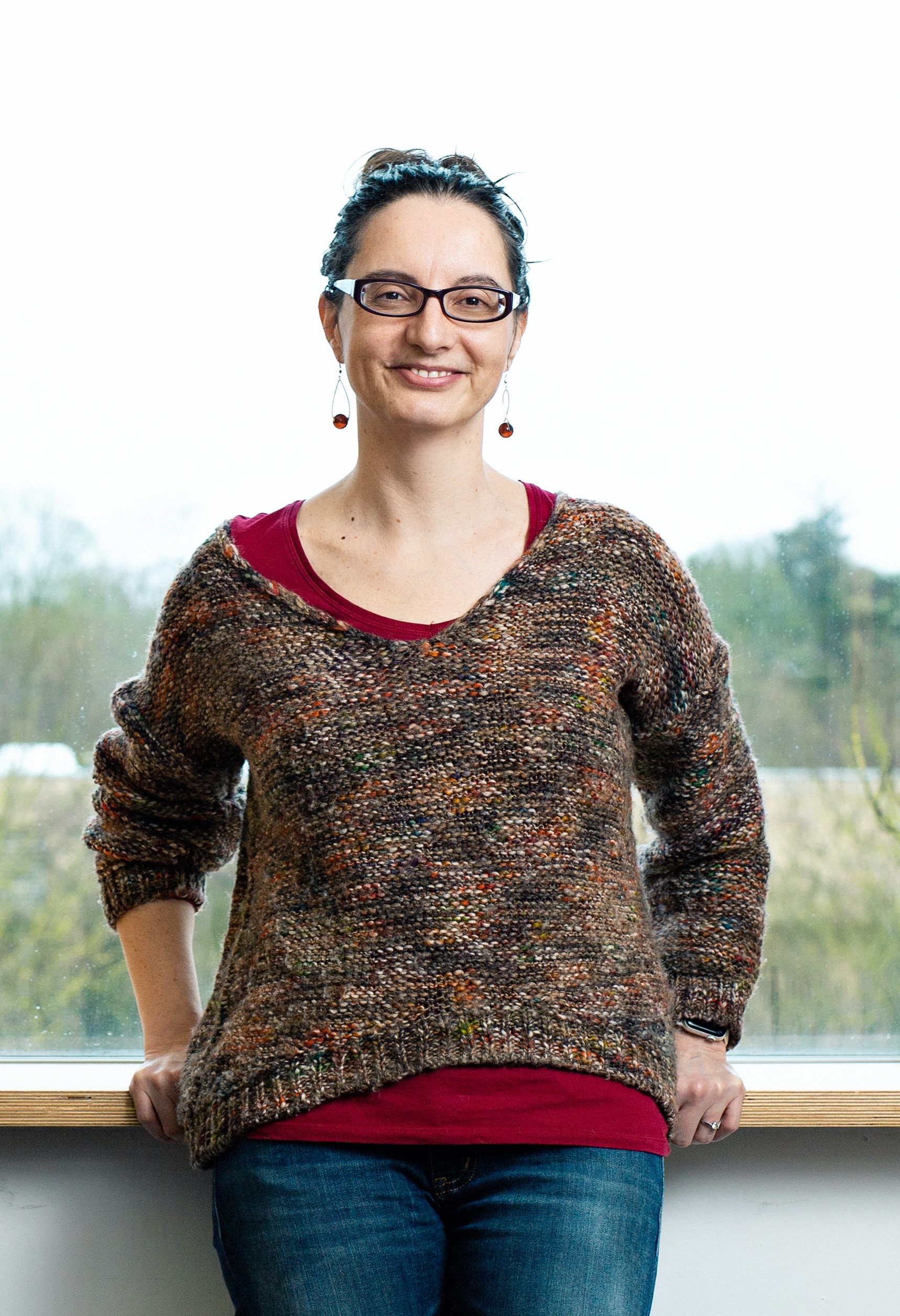
Title: Sounding out audio data and wearable systems for health diagnostics.
Speaker: Dr. Cecilia Mascolo, Univ. of Cambridge, UK
Date: Mar 19, 2021
Abstract: Considerable research has been conducted into mobile and wearable systems for human health monitoring. This research concentrates on either devising sensing and systems techniques to effectively and efficiently collect data about users, and patients or in studying mechanisms to analyze the data coming from these systems accurately. In both cases, these efforts raise important technical as well as ethical issues.
In this talk, I plan to reflect on the challenges and opportunities that mobile and wearable health systems are introducing for community, the developers as well as the users. I will use examples from my group's ongoing research on exploring
machine learning and data analysis for health application in collaboration with epidemiologists and clinicians. In particular I will discuss our project on using audio signals for disease diagnostics and our recent work in the context of COVID-19: a crowd sourced collected through mobile apps (covid-19-sounds.org) of respiratory sounds (coughs, breathing and voice) to prescreen and diagnose COVID-19.
Bio: Cecilia Mascolo is the mother of a teenage daughter but also a Full Professor of Mobile Systems in the Department of Computer Science and Technology, University of Cambridge, UK. She is co-director of the Centre for Mobile, Wearable System and Augmented Intelligence and Deputy Head of Department for Research. She is also a Fellow of Jesus College Cambridge and the recipient of an ERC Advanced Research Grant. Prior joining Cambridge in 2008, she was a faculty member in the Department of Computer Science at University College London. She holds a PhD from the University of Bologna. Her research interests are in mobile systems and data for health, human mobility modeling, sensor systems and networking and mobile data analysis. She has published in a number of top tier conferences and journals in the area and her investigator experience spans projects funded by Research Councils and industry. She has received numerous best paper awards and in 2016 was listed in “10 Women in Networking /Communications You Should Know”. She has served as steering, organizing and programmer committee member of mobile, sensor systems, networking, data science conferences and workshops. She has delivered a number of keynote talks at conferences and workshops in the area of mobility, data science, pervasive computing and systems. More details at www.cl.cam.ac.uk/users/cm542
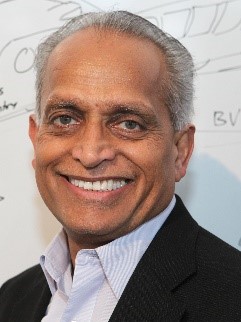
Title: The Rise of Cyber Physical Human Systems
at the crossroads of domain, data and data sciences
Speaker: Dr. Chandrakant D. Patel, HP Chief Engineer and Senior Fellow
Date: Apr 2, 2021
Abstract: 19th and early 20th century engineering was about the industrialization of physical and electro-mechanical systems like the steam engine and the utility grid. The latter half of the 20th century has been about information management, cyber systems and the Internet. The 21st century is about the integration of the two and the proliferation of cyber-physical systems (CPS) that address the challenges stemming from global social, economic and ecological trends such as resource constraints, demographic shifts, human capital constraints. Furthermore, the lack of human capital - from specialized surgeons to people with depth in running city scale infrastructures such as power plants - will give rise to cyber-physical-human systems. These human integrated physical solutions will be devised to achieve the scale necessary to meet the demand side needs. Indeed, the burden of negative externalities, from pandemics to environmental issues, is accelerating the need for cyber physical human systems.
The solutions of the cyber physical human era are systemic instantiations of operating technologies (OT) and information technologies (IT) that function at the intersection of domain theories, data organization and data science. Data science advances in Artificial Intelligence (AI) are intertwined with advances in physical sciences resulting in complex cyber physical systems.
The 21st century cyber physical contributors must have depth in engineering fundamentals of the machine age and breadth in information sciences of the cyber age. This can be achieved through a variety of learning paths such as dual degrees, continuing education and “learn by doing” projects focused on building cyber physical OT+IT integrated systems to become “T” shaped systems contributors.
Bio: Chandrakant is HP’s Chief Engineer and Senior Fellow. He has led HP in delivering innovations in chips, systems, data centers, storage, networking, print engines and software platforms. Chandrakant is a pioneer in thermal and energy management in data centers, and in application of the information technology to drive available energy management at city scales. His current technical interests are focused on 21st century cyber physical systems such as HP’s 3D Print Engines.
Chandrakant is a Fellow of the American Society of Mechanical Engineers (ASME) and a Fellow of Institute of Electrical and Electronics Engineers (IEEE), holds 153 patents, and has published more than 150 technical papers. An advocate of the return to fundamentals, he has served as an adjunct faculty in engineering at Chabot College, U.C. Berkeley Extension, San Jose State University and Santa Clara University. In 2014, Chandrakant was inducted into the Silicon Valley Engineering Hall of Fame. In 2018, he was inducted into the National Academy of Engineering.
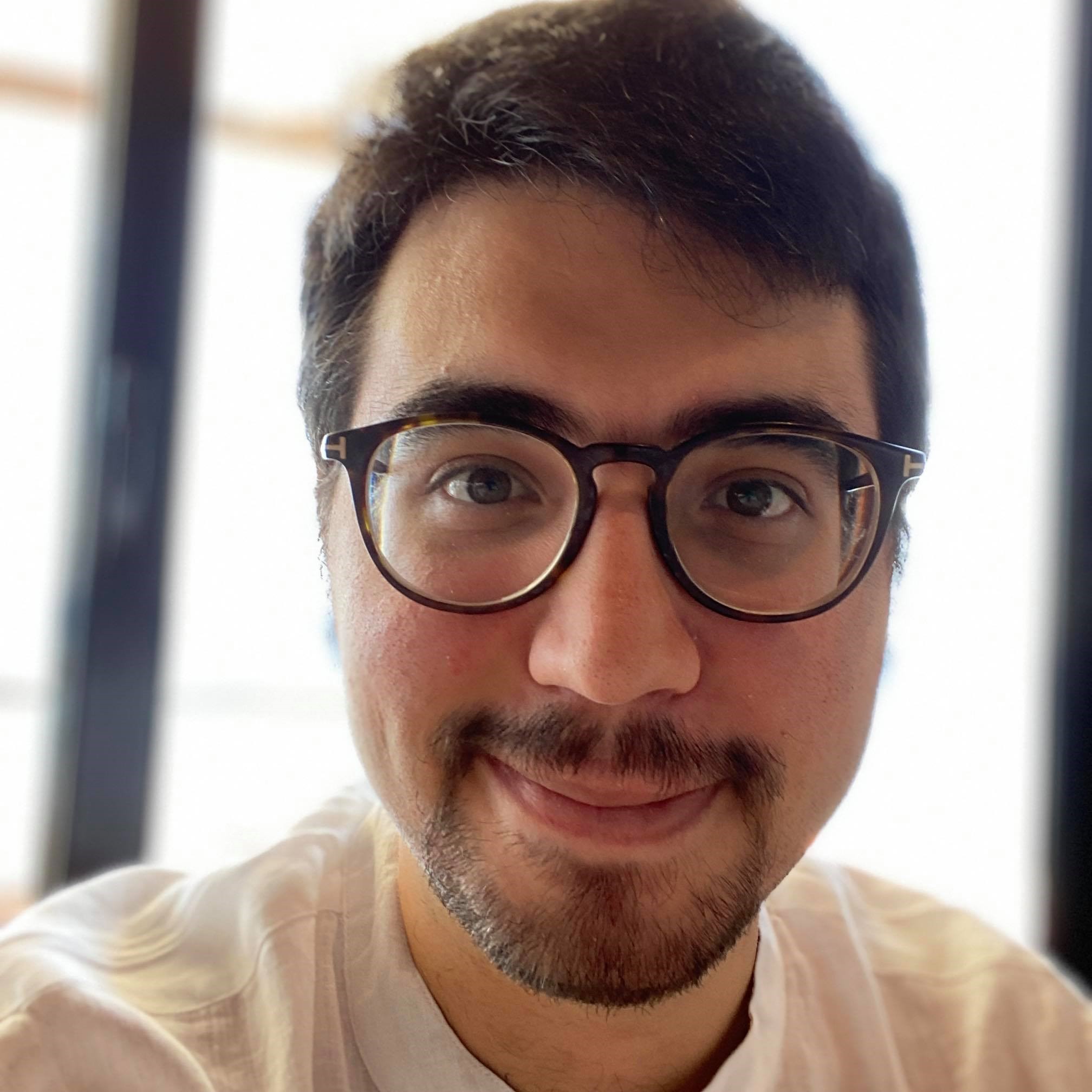
Title: Deep Learning Techniques for Intelligent Cyber Physical Systems: Towards a New Generation of Smart and Autonomous Things
Speaker: Dr. Fabrizio De Vita, University of Messina, Italy
Date: Apr 9, 2021
Abstract: We are living in an era surrounded by objects blended with the environment. The advent of Internet of Things (IoT) revolutionized the way we interact with these objects and acted as a catalyzer for the creation of a wide variety of Cyber Physical Systems (CPS) exposing services to support humans under different aspects of life. An important aspect of CPS deals with smart environments that simplifies (or automates) daily activities. Cloud and Edge computing paradigms play a fundamental role for realizing such systems by providing storage and high-performance computing capabilities, pervasive monitoring and early processing of data gathered from sensors. In such a context, Artificial Intelligence (AI) is another very important player due to the advancements in ICT and availability of a huge amount of data. Leveraging these technologies, Intelligent Cyber Physical Systems are being developed to make ``reasonings'' and perform autonomous context-aware actions. This talk will present algorithmic solutions applied to various intelligent CPS (e.g., smart home, smart city, smart industry, smart health, and smart agriculture), focusing on the challenges in the design and implementation processes. Experimental results will demonstrate the feasibility of the proposed approaches.
Bio: Dr. Fabrizio De Vita received his bachelor’s degree in Computer Engineering in 2015; master’s degree in Engineering and Computer Science in 2017; and PhD degree in ``Cyber Physical Systems'' in January 2021, all from the University of Messina (Italy). His research interests include cloud and edge computing, industrial IoT, deep and federated learning solutions for intelligent CPS and smart environments. He has published several papers in these areas. From July 2019 to April 2020, he visited Missouri University of Science and Technology where conducted research activity on the Smart Industry and Smart Cities. He also collaborated with STMicroelectronics on Smart Agriculture solution exploiting intelligent CPS and deep learning to detect the health state of plants, wining the Best Paper Runner Up Award at IEEE SMARTCOMP2020 conference.
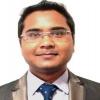
Title: Stable Matching based Resource Allocation for Service Provider’s Revenue Maximization in 5G Networks
Speaker: Dr. Ajay Pratap, Indian Institute of Technology - BHU
Date: Apr 16, 2021
Abstract: 5G technology is foreseen to have a heterogeneous architecture with various computational capabilities, and radio-enabled Service Providers (SPs) and Service Requesters (SRs), working altogether in a cellular model. However, the coexistence of heterogeneous network models spawns several research challenges such as diverse SRs with uneven service deadlines, interference management, and revenue maximization of non-uniform computational capacities enabled SPs. Thus, I'll talk about the coexistence of heterogeneous SPs and SRs enabled cellular 5G networks and discuss SPs’ revenue maximization via resource allocation, considering different kinds of interference, data rate, and latency altogether as an optimization problem. I will further elaborate distributed many-to-many stable matching based solutions for static and dynamic cellular 5G networks.
Bio: Dr. Ajay Pratap is an Assistant Professor with the Department of Computer Science and Engineering, Indian Institute of Technology (Banaras Hindu University), Varanasi, India. Before joining IIT (BHU), he was associated with the Department of Computer Science and Engineering, National Institute of Technology Karnataka (NITK) Surathkal, India, as an Assistant Professor from December 2019 to May 2020. He worked as a Postdoctoral Researcher in the Department of Computer Science at Missouri University of Science and Technology, USA, from August 2018 to December 2019. He completed his Ph.D. degree in Computer Science and Engineering from the Indian Institute of Technology Patna, India, in July 2018. His research interests include IoT-enabled Smart Environments, Statistical Learning, Algorithm Design for Next-generation Advanced Wireless Networks, Applied Graph Theory, and Game Theory. His current work is related to WBAN, Small Cells, Fog
Computing, IoT, and D2D communications underlaying cellular 5G networks and beyond.
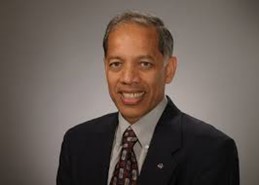
Title: Advanced Computing for NASA Science and Engineering
Speaker: Dr. Rupak Biswas, Director, Exploration Technology Directorate, NASA Ames Research Center
Date: Apr 23, 2021
Abstract: High-fidelity modeling, simulation, and analysis, enabled by supercomputing, are critical to NASA’s missions in space exploration, aeronautics research, and scientific discovery. While such advancements used to rely primarily on theoretical studies and physical experiments, high-end computational science today is an equal contributor to such achievements. In addition, computational modeling and simulation serves as a predictive tool that is not otherwise available. As a result, the use of high-performance computing is now integral to the space agency’s work in all mission areas. However, the success of many NASA missions depends on solving complex computing challenges, some of which are intractable on traditional supercomputers. This is where quantum computing could play an unprecedented role by harnessing effects such as tunneling, superposition, and entanglement. This talk is an overview of how a spectrum of advanced computing capabilities is leveraged for NASA’s mission success.
Bio: Dr. Rupak Biswas is the Director of Exploration Technology at NASA Ames Research Center, Moffett Field, Calif., and has held this Senior Executive Service (SES) position since January 2016. He is in charge of planning, directing, and coordinating the technology development and operational activities of the organization that comprises of advanced supercomputing, human systems integration, intelligent adaptive systems, and entry systems technology. The directorate consists of approximately 950 employees with an annual budget of $230 million and includes two of NASA’s critical and consolidated infrastructures: arc jet testing facility and supercomputing facility. Dr. Biswas received his Ph.D. in Computer Science from Rensselaer in 1991 and has been at NASA ever since. During this time, he has received several NASA awards, including the Exceptional Achievement Medal and the Outstanding Leadership Medal (twice). He is an internationally recognized expert in high performance computing and has published more than 170 technical papers, received many Best Paper awards, edited several journal special issues, serves on the IEEE/ACM Supercomputing Conference Steering Committee, and given numerous lectures around the world.
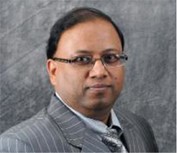
Title: Secure Information Forwarding through Fragmentation in Delay-tolerant Networks
Speaker: Sanjay K Madria, Curators’ Distinguished Professor, Department of Computer Science, Missouri University of Science and Technology
Date: Apr 30, 2021
Abstract: In application environments like international military coalitions or multi-party relief work in a disaster zone, passing secure messages using a Delay Tolerant Network (DTN) is challenging because the existing public-private key cryptographic approaches may not be always accessible across different groups due to the unavailability of Public Key Infrastructure (PKI). In addition, connectivity may be intermittent so finding reliable routes is also difficult. Thus, instead of sending a complete message in a single packet, fragmenting the message, and sending the fragments via multiple nodes can help achieve better security and reliability when multiple groups are involved. Therefore, encrypting messages before fragmentation and then sending both the data fragments and the key fragments (needed for decryption) provide much higher security. Keys are also fragmented as sending the key in a single packet can hamper security if it is forwarded to some corrupt nodes who may try to tamper or drop it. In this talk, I will discuss a scheme to provide improved security by generating multiple key-shares and data fragments, and disseminating them via some intermediate nodes. In this fragmentation process, we also create a few redundant blocks to guarantee higher data arrival rate at the destination when the message drop rate is high like in a DTN environment. The performance evaluation when compared to the closely related scheme like Multiparty Encryption shows the improvement on minimizing the number of compromised messages as well as reduced bandwidth consumption in the network.
Bio: Sanjay K Madria is a Curators’ Distinguished Professor in the Department of Computer Science at the Missouri University of Science and Technology (formerly, University of Missouri-Rolla, USA). He has published over 285 Journal and conference papers in the areas of mobile and sensor computing, Big data and cloud computing, data analytics and cyber security. He won five IEEE best papers awards in conferences such as IEEE MDM and IEEE SRDS. He is a co-author of a book (published with his two PhD graduates) on Secure Sensor Cloud published by Morgan and Claypool in Dec. 2018. He has graduated 16 PhDs and 33 MS thesis students, with 9 PhDs currently progressing. NSF, NIST, ARL, ARO, AFRL, DOE, Boeing, ORNL, Honeywell, etc. have funded his research projects. He has been awarded JSPS (Japanese Society for Promotion of Science) invitational visiting scientist fellowship, and ASEE (American Society of Engineering Education) fellowship. In 2012 and in 2019, he was awarded NRC Fellowship by National Academies, US. He is ACM Distinguished Scientist, and served/serving as an ACM and IEEE Distinguished Speaker, and is an IEEE Senior Member as well as IEEE Golden Core Awardee.

Follow Computer Science